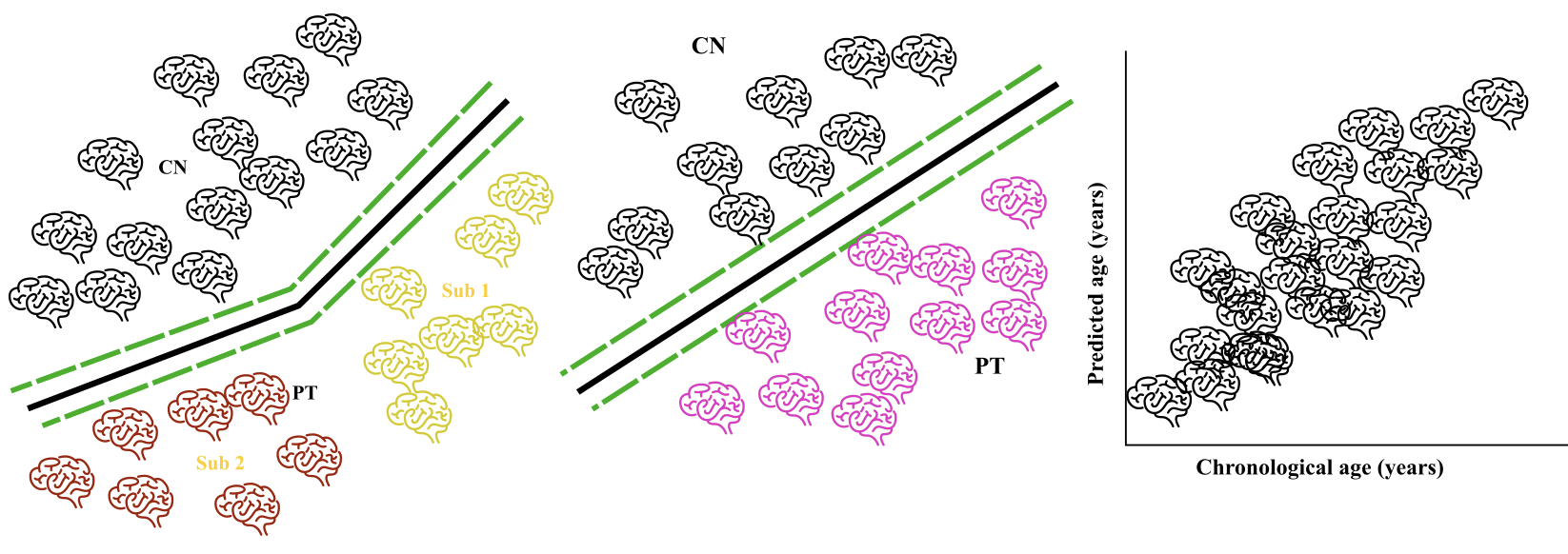Machine Learning in NeuroImaging
MLNI is a python package that performs various tasks using neuroimaging data: i) binary classification for disease diagnosis, following good practice proposed in AD-ML; ii) regression prediction, such as age prediction; and iii) semi-supervised clustering with HYDRA.
⚠️ Please let me know if you use this package for your publication; I will update your papers in the section of Publication using MLNI...
⚠️ Please cite the software using the Cite this repository button on the right sidebar menu, as well as the original papers below for different tasks...
Wen, J., 2020. Reproducible evaluation of diffusion MRI features for automatic classification of patients with Alzheimer’s disease. Neuroinformatics, pp.1-22. doi:10.1007/s12021-020-09469-5 - Paper in PDF
Wen, J., 2024. The Genetic Architecture of Multimodal Human Brain Age. Nature Communications, pp.1-22. 10.1038/s41467-024-46796-6 - Paper in PDF
Varol, E., 2017. HYDRA: Revealing heterogeneity of imaging and genetic patterns through a multiple max-margin discriminative analysis framework. Neuroimage, 145, pp.346-364. doi:10.1016/j.neuroimage.2016.02.041 - Paper in PDF
Wen, J., 2021. Multi-scale semi-supervised clustering of brain images: deriving disease subtypes. MedIA. - Link
Wen, J., 2022. Characterizing Heterogeneity in Neuroimaging, Cognition, Clinical Symptoms, and Genetics Among Patients With Late-Life Depression. JAMA Psychiatry - Link
Lalousis, P.A., 2022. Neurobiologically Based Stratification of Recent Onset Depression and Psychosis: Identification of Two Distinct Transdiagnostic Phenotypes. Biological Psychiatry. - Link
